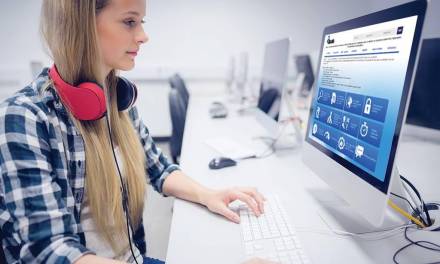As the coronavirus badly affects many countries around the world, nations are turning to virtual classrooms so that education can be maintained.
Concerns have been raised that the illness could force school closures and delay GCSE and A-level exams in the UK.
But does the education system have to shut down, and what are the benefits of virtual classrooms?
An update on coronavirus in schools
The Daily Mail reports this morning that exam boards are planning for a range of scenarios. Ofqual could prepare rule changes in case pupils are forced to miss lessons or assessments.
If any pupils underperform as a direct or indirect consequence of the virus will be awarded special consideration grades. Pupils unable to make an exam will be graded based on previous performance.
Ofqual said:
We recognise that students, parents, schools and colleges will be concerned about the possible impact of coronavirus on the 2020 summer exam series
Our advice at this time is to continue to prepare for exams and other assessments as normal.
Meanwhile universities are also drawing up contingency plans, which includes lowering grade requirements for A-level pupils. Should exams have to be delayed, UCAS is considering pushing back deadlines for university applications.
The University of Washington in the United States is closing classrooms and moving 50,000 students to online learning as a result of the virus.
What are virtual classrooms?
A virtual classroom is an online learning environment that allows for live interaction between a teacher and learners.
Usually interactions take place through videoconferencing. Learning can be presented in different formats. They do not always need an active instructor to be present. An unsupervised virtual classroom is characterised by ready-made learning materials that students can follow without the aid of an instructor.
An instructor-led classroom conforms to a traditional classroom definition. There is at least one active instructor present and the lesson is carried on in real time at a specific time and date.
Advantages of virtual classrooms
A virtual classroom offers the following advantages:
Convenience: Because virtual classrooms remove the limitation of time and location, they provide greater convenience. Learners have the freedom to study and finish coursework at any time, freedom to engage with others on classroom topics, and do an assignment or go through class content at a time that best fits their schedule.
Time management: Attending a virtual classroom in the comfort of your own home, can potentially save hours spent commuting back and forth between classes on campus.
Enhanced digital skills: While increasing skills and knowledge in your area of study, digital skills are also sharpened. Progression in the online world can add greater confidence when using computer-based solutions and applications.
Affordability: Both the school and the parent save as a result of online learning. The school costs associated with maintaining pupils’ education and running classrooms are reduced, whereas the costs of buses, dinners etc for the pupils are no longer required to be spent by parents.
Immediate feedback: If you are enrolled on an online program, many of the assessments provide automatic, built-in results. This means you receive feedback straight away, instead of being marked independently by the teacher over a longer period of time.
Health: Schools are one of the largest spreaders of viruses, and therefore school closures are being considered to dampen down the epidemic significantly. Reducing the spread of the virus should protect people from illness and reduce the risk of death.
How can EDLounge benefit pupils who self-isolate?
EDLounge Limited’s stock of 11,000+ lessons mean that your school can stay open even if the building has closed.
Lessons can be studied up to GCSE standards, and live teaching can be provided. A range of safeguarding facilities mean that students are safe whilst using the online platform. Find out more about these here.
To enquire about or products or to request a demonstration complete the contact form below. Find out more about us here.
EDLounge was inspected by Ofsted in 2019. You can read the report here.









